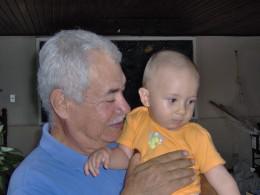Dichter
William Agudelo

William Agudelo
(Colombia, 1942)
© William Agudelo
Biografie
A self-taught musician, sculptor and poet, William Agudelo has lived in Nicaragua since 1966, where he helped the poet Ernesto Cardenal in the founding of the community of Solentiname. In the 1980s he worked as a director of graphic arts in the Ministry of Culture of Nicaragua, and in the 1990s he was director of a cultural centre there. He has published a diary, translated into German and English, two books about the Nicaraguan Revolution, and many poems in reviews and magazines. He now devotes his life to writing poetry and to wood-carving and pyrography on leather.
Agudelo has said that he began to write poetry “to win the heart of a girl with perfect sonnets”, and that poetry for him is “an awakening of sentiments, a call to express the ineffable, to uncover injustice, to prop up beauty, to see the world with wonder”. He does not believe in inspiration, unless it is understood as “the initial spark followed by a daily, hard and constant work to achieve a strong structure covered with filigree”. As a boy, he explains, he was a tireless reader of all kinds of texts and felt that he would be able to write, so that when he was given the tools in the literature classes at school he began to do so, discovering even then that childhood was “the source from which springs everything that I write . . . It is a form of perceiving the world with innocence and wonder, as children do, giving colour and clarity to one’s perception as an adult. Nothing equals, in art, that first vision of things happily expressed.” Bibliography
Poetry
Nuestro lecho es de flores, Joaquín Mortiz, Mexico, 1970
El asalto a San Carlos, Editorial La Ocarina, Ministerio de Cultura, Managua, Nicaragua, 1983
El ángel de San Judas, Fondo Editorial Asociación Noruega de Escritores (ANE) and Centro Nicaragüense de Escritores (CNE), Managua, Nicaragua, 1997
Links
Poems and biography in Spanish on the Medellín poetry festival website
YouTube video from the Medellín festival, in Spanish
Lina Zeron’s blog: poems and biography in Spanish
Gedichten
Gedichten van William Agudelo
Sponsors
























